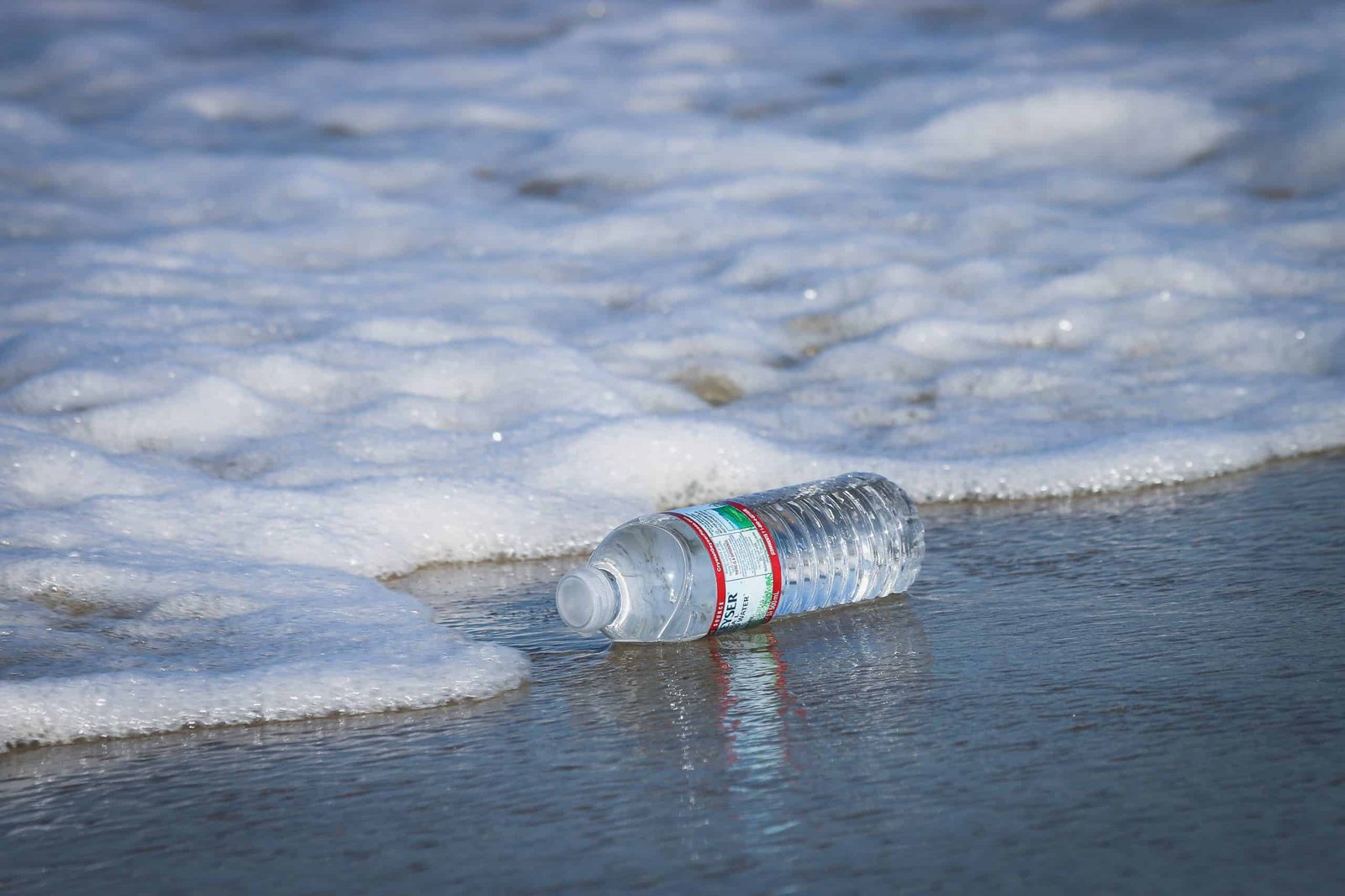It all started in a small town.
Every summer, my family would go to this small town next to the sea where families would come and take their kids to play every night after a long day at the beach. My friends and I would bike to each other’s houses and stay up late at the one small cafe next to the beach.
Even after the town became unpopular and shabby, my family still went there every single summer.
Without the presence of people, the town changed. Over the summers, I noticed a lot of growth in nature.
The grass became taller, and plants began to grow through the broken sidewalks. Flowers bloomed in every corner of every street. Tree roots began to wrap themselves around the broken benches. The playground became filled with moss and mushrooms, and nature worked its way around the rusty swing sets. The empty pools dried up and became a small ecosystem of green and muddy grass, habituating bacteria and aquatic insects. Crabs and jellyfish began to reappear on the seashore. I’d look at the once trash-filled water and realize that dark colour was now seaweed.
Nature hugged this small town I called my summer home. Nature persevered.
This is the environment I spent my childhood in. And so, naturally, as I grew and my mind expanded, I began to wonder about how nature, by instinct, took over this small town.
Mother nature took over my summer home.
How did nature have this instinctive temptation to grow? To expand against all odds?
As I learned more at school about the anatomy and physiology of nature, of the processes each living thing takes to grow, this wonder became a part of who I was. Maybe I was so attracted to the feeling of belonging because I struggled with finding my own instinct to be. Unlike the innate sequence of growth in nature, no matter how much sunlight, water, or soil is available to me, there’s always the struggle of growth. But I never found it difficult there, in that small ghost of a town.

Image of trees growing through an abandoned home in the North Coast taken by me.
Growing up
It’s difficult to explain the humanity of observing nature. Eventually, that feeling grew with me.
It followed me to the Red Sea when I learned that being underwater could offer my eyes more colours than they had ever dreamed existed. When I reached my hands out to the tiny living creatures of the sea who live within and without the corals, simultaneously trying to survive just as each of us is. When I saw a dolphin for the first time, turning to its side to reveal a belly filled with future generations of life.
It followed me in my travels around the world, hearing my echo relay through an underwater cave, with nothing but the murmur of a waterfall crashing and falling in the distance to guide me through the water. Seeing trees decorated by the ic
y white of the snow for the first time, like a million different patterns of snowflakes, fell to the ground.
It followed me back to Cairo, when I felt the sun on my skin on a freezing day, hoping the clouds would part for just a little while, and I felt like one of those flowers blooming through the cracked sidewalk. When I saw those mushrooms grow in my school’s garden, and spent hours admiring how they grew in such an unlikely environment. And sometimes I got that feeling whenever my dog would come sleep in my bed, and I could hear breathing, knowing a million different processes were churning inside her body, enabling her to live.
And sometimes I dream of that feeling. Of being in the deepwater, not being able to reach the ground, as the sun reflects through the waves, revealing a bright world underneath that is unknown to me. It isn’t easy to describe a feeling that leads me to believe that this is where I always belonged. Holding my breath, but finally being able to breathe. I learned to love myself as if I were equally a part of nature. And I was.
The more I learned and observed, the more I realized that all the pieces fit together. Nature was designed to support itself, to survive. To provide suitable ecosystems for all its inhabitants. To create a chain of life and death, one that keeps a balance in this easily unbalanced earth.

An abandoned pool in the North Coast taken by me.
The world is designed so precisely for living things to thrive. Constantly, the components of nature are working hand in hand to ensure the survival of this earth. For billions upon billions of years, this endless and beautiful cycle of life has continued throughout all circumstances.
How did this humanmade era come to be?
Nature even anticipated the arrival of humanity.
Even the anatomical structure of our bodies was designed to coexist with nature. Trees around us happen to absorb the very toxin that is a danger to our lungs and release the very oxygen that allows us to exist. Studies of our perception of beauty consistently prove that nature has a positive impact on our mental states. We learn from nature, building our homes similarly to many of the structures of coral life and rigid plant cell membranes, like how Japan uses willow and wood in construction to withstand the constant threat of earthquakes. We use nature’s plentiful resources to create objects that make a living easier. Even our early ancestors relied on this balance of nature to survive and evolve into the complex beings we are today.

Example of a Japanese home designed to withstand earthquakes.
Humans have tried so hard for so long to explain this natural phenomenon of life, because there must be some greater existence that carefully conspired to create this world of ours, plotting each and every single process so precisely, that everything, even the smallest of details, naturally fits together. Whether one chooses to believe in explanations such as religion or science, or both, the core of it all is the ever-existing marvel of being.
This world of ours has become impeccably and almost incomprehensibly vast and grand. In this humanmade era, we’ve designed a lifestyle that allows this generation of humanity the luxury of not having to worry about survival. And we’ve mimicked nature so well to reach this point in our concise history.
The consequences of humanity’s largest failure
In our brief existence on this Earth, we’ve failed to adapt to the one true element it has revolved around for billions of years; balance.
We have created a continuous cycle of self-destruction. We disrupt the balance of the world because as we evolve, we want more. More resources, more money, more buildings, more opportunities, more and more, and more.
We exploit everything around us, taking advantage of the availability of this dynamic structure that has been provided to us.
Oh, but it’s fine. We’ll make more of it.
Because it’s more cost-effective, to spend money creating more of an exploited resource instead of preserving it in the first place. Anything, except admit that we are the root of the problem that needs to be extracted from the ground we have been poisoning for years.
But not everyone can afford more. Some are content with the basic amount of resources that nature had initially provided us with. But for those who want more to have more, they must take it. Because, similarly to the physics of mass, nothing can be created or destroyed. It is transferred from one area to another. Therefore, to get more, we take more from those who cannot afford to do the same. Consequently, humanity splits in two. And the balance that nature has preserved for billions of years is broken.
Cities are drowning, as the temperature increases, and ocean levels rise. The ground is sinking, as freshwater usage and exploitation of aquifers increases. As people fight for their rights, authorities turn a blind eye towards their suffering, prompting violent protests as the government tries to contain the injustice seeping through their marching streets.
But aren’t these resources being used to support our basic needs of survival? No. They’re being used to mass-produce products that feed the mouth of consumerism created by corporations who intend to profit off of the destruction of the planet.
Even in the deepest parts of the sea, parts that even years of science has still not been able to explore, plastic bags are found amongst the rarest of marine life. There is not a corner of this vast world that has not seen the devastation of human influence.
Scientists have dedicated their lives to understanding the ever-expanding nature of the universe, revealing the distinct past and future of our small cluster of galaxies. We are a hundred billionth of a per cent of the observable universe. And there is so much we are yet to explore on our very own planet.
So how could we so easily disregard all that the world has designed for us? How could we so easily cause so much damage to such a phenomenon that has been given to us?
We value water so little that some countries, like Egypt, lose almost half of it’s supply to leaky pipes.

People navigating through the streets in Alexandria after floodwater caused by rising sea levels.
We value forests so little, the very resource of the oxygen we need to survive, that we chop it all down to keep business cost-effective. We value the ozone layer so little, the very atmosphere that protects us from the sun’s rays, that we release toxic chemicals into the air we breathe. How can our population, now considered a threat to this world that has existed for billions of years, take such little care towards our very own survival?
We will be our own demise. Not aliens that will colonize our lands and kill our people. Not a meteor that will threaten to blow our world to pieces. We are more of a threat to ourselves than anything ever has or will be. And despite the environmental movement that has recently taken place, despite all the activism and recognition that environmentally conscious projects have gotten, corporate greed and sheer ignorance still steer the ship of humanity into a dark abyss. Climate change has shifted away from being factual scientific research and has become a political debate that will only ever benefit the 1% of the population.
And will this 1% suffer from the consequences of our self-destructive human nature?
Maybe eventually. But for now, it’s those who actively cooperate with the balance of nature who suffer. Underdeveloped countries who cannot afford to waste this earth away are the ones suffering from food and water shortage, extreme weather and natural disasters, and pollution.
But we are the key to this seemingly hopeless situation. This generation is the most open-minded, most empathetic, and most educated one to exist in the history of humanity. And I have seen a pattern amongst my peers that gives me hope that the balance of nature will persevere as it always has, and we will learn once again to be a part of this small ghost town of a summer home we call earth because the essence and core of every living thing are being.









What do you think?
It is nice to know your opinion. Leave a comment.